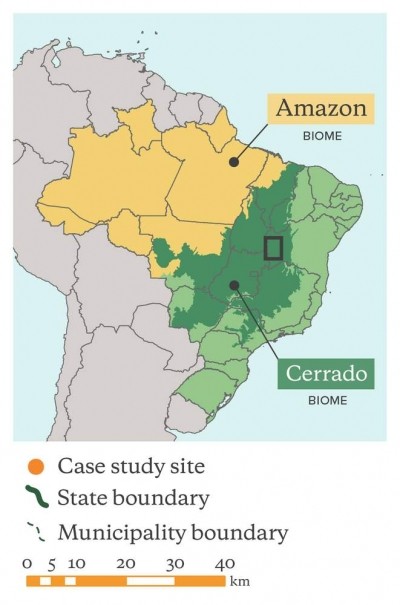Green Century questions Cargill's 2030 deforestation timeline, reveals advocacy tactics

That US mutual fund, which is owned by environmental non-profits, the Public Interest Research Groups, leverages its clout as a shareholder to press top US companies to make their supply chains more sustainable.
But as Cargill is a privately owned agribusiness, Green Century cannot influence change in the Minneapolis headquartered firm in the same way it has done in recent months with other commodity players such as ADM and Bunge.
However, commenting on Cargill’s new policy on forests released in September, Lucia von Reusner, shareholder advocate for Green Century Capital Management, told us the trader needs to act faster to remove deforestation from its supply chain given the ongoing abuses in the palm oil and soy sectors: “Destruction of forests is going on today. The 2030 timeline does not reflect the urgency of the situation.”
She said Green Century was extremely supportive of Cargill’s signing of the New York Declaration in November 2014 and its pledge to eliminate deforestation across all commodities in its supply chain. “But we have not seen much in terms of disclosure on progress since then,” added von Reusner.
Reacting, Chris Schraeder, director of sustainability communications at Cargill, told FeedNavigator:
“We’ve made significant progress over the 18 months or so and have been sharing our progress along the way – but we know we have more work to do.
The New York Declaration was a major milestone for us, but it only scratches the surface of what we've been working on. We issued palm progress updates in November 2014, April 2015 and August 2015 and we announced a global policy and expanded regional action plans to fight deforestation in September 2015. The action plans outline the immediate steps we’ll be taking over the next year to address deforestation across a number of priority supply chains. Our policy is perhaps the most extensive and far-reaching within our industry.
We also understand the concern that progress is not happening fast enough and we share in the resolve to take action. These are complex issues and we recognize that we haven’t completely figured it out. Which is why we are actively working to find lasting solutions -we’ve already seen great progress in the Brazilian Amazon, for example, but we know there’s a lot more work to do.
It is a challenge that no single company can solve on its own, and we’re engaged with a variety of stakeholders — farmers, government, experts, and our customers — to move in the right direction.”
Green Century said Louis Dreyfus Commodities, another of the Big 4 firms that dominate global agricultural flows, has been silent on whether it will follow suit. “Obviously, not being accountable to shareholders, it doesn’t have the same onus on it regarding public disclosure around such initiatives,” said von Reusner.
Advocacy tactics
Last spring Green Century filed a shareholder resolution calling on Bunge to adopt a policy to eliminate deforestation across all its supply chains, including soy, sugar, and corn, citing the long terms risks from not doing so.
The filing stated: Failure to keep pace with shifting market expectations for sustainable production may pose significant risks to Bunge including restricted market access, reputational damage, loss of goodwill, and barriers to capital.
“One third of Bunge shareholders agreed, which was very high, sending a clear indication to management that this was a risk that needed to be dealt with,” said von Reusner.
The agribusiness giant finally announced a cross-commodity commitment to zero deforestation in September.
The ownership stake required to bring forward any issue to investors is minimum, said von Reusner, making it a cost effective advocacy tactic. “Anyone wishing to do so must have a least $2,000 worth of shares held for a period of one year,” she said.
However the approach is not without its pitfalls: “If your resolution does not receive enough votes, you may be barred from resubmitting it for three years,” said von Reusner.
But the investor action group always aims to engage a company in discussions first before filing a resolution. “ADM came to the table - we had an open dialogue with the company and it announced zero deforestation pledges across its supply chain in May this year - a change in policy without a shareowner vote.
In terms of Bunge though, brining the issue to shareholder level proved a necessary step as we felt it was not being overly receptive to moving forward on adoption,” she said.
Commenting on the Bunge policy adoption, Jean Timmers, soy lead at WWF International, said: “The push by shareholders via Green Century has provided powerful leverage to help companies source more sustainable commodities.”








